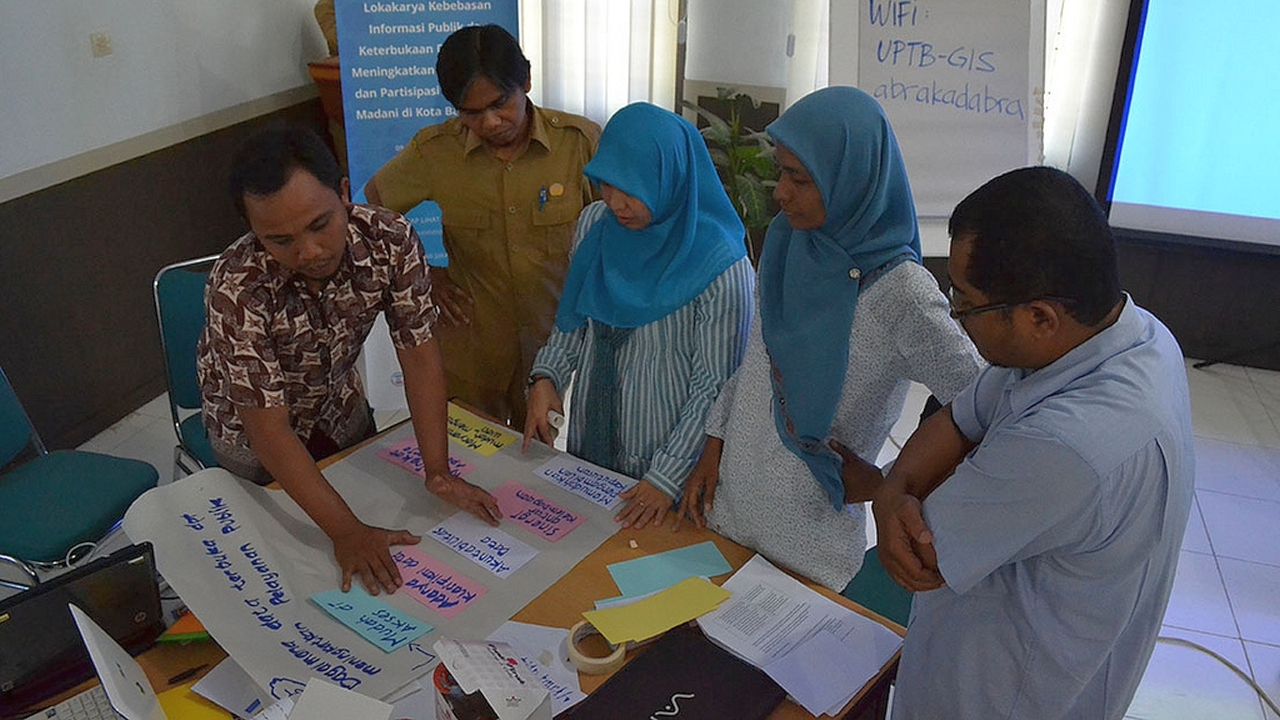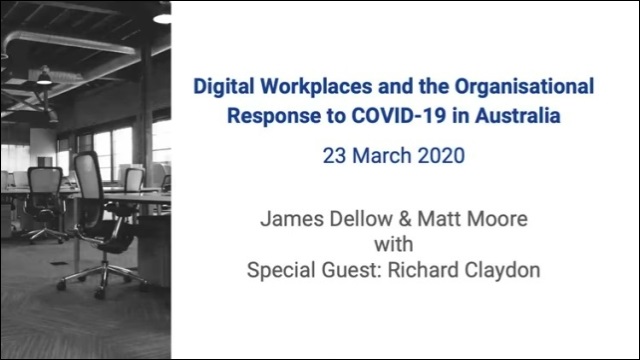
The outcomes of informal work-related learning behaviours
Traditionally, the focus has been on formal work-related learning, which occurs through intentionally planned educational learning activities in an environment that is designed for learning. In other words, it occurs within a fixed time frame and with the help of a designated teacher or facilitator, with the aim of achieving predetermined learning objectives.
However, in both research and practice, many believe that informal work-related learning also contributes to important and positive outcomes. As a result, research on informal work-related learning outcomes is quickly accelerating. A newly published systematic review1 explores this emerging body of research to identify the outcomes of informal work-related learning behaviours.
The systematic review was carried out in accordance with the PRISMA guidelines2. A keyword search of academic databases was conducted, followed by the application of exclusion and selection criteria. This resulted in the identification of 39 primary studies for further analysis.
Review findings
The review findings contradict the idea that informal work-related learning outcomes are only tied to the specific job. The identified informal work-related learning outcomes were diverse along different dimensions, going from hands-on to abstract, short-term to long-term, and applicable to the current job only or across jobs.
The outcomes were divided into three categories:
1. Changes in knowledge, skills, or attitudes
Job-specific knowledge, skills, and attitudes. Informal work-related learning is often aimed at increasing competence and proficiency in the current job. The general pattern of results is that informal work-related learning contributes to the acquirement of specific knowledge, skills, and attitudes, though the vast majority could be classified as skills. In addition, most of the knowledge and skills acquired are hands-on, while the attitudes are rather abstract. There is also a general perception of competence related to the job or occupation, which can be given the label of general professional competence and proficiency. Examples of knowledge and skills outcomes include subject knowledge among teachers, knowledge of football techniques among footballers, and technical-practical skills among nurses. An example of attitudes outcomes is some teachers becoming more resistant to reform after engaging in informal learning.
Generic knowledge, skills, and attitudes. Beyond the current job, there are generic knowledge, skills, and attitudes that can be transferred across jobs and are not tied to a specific job or occupation. For example, computer skills and administrative skills.
2. Individuals’ and organizations’ professional achievement
Performance. Individual job performance can be a beneficial outcome of informal work-related learning in jobs that require greater updating and use of relevant information, in jobs with relatively low decision-making and problem-solving requirements, in the presence of a highly nonpunitive climate, and in the presence of poorly staffed units. Informal work-related learning can also contribute to organizational performance / readiness and the development of a competitive advantage. This is because informal work-related learning can reduce employee errors in the production process, fill skill shortage needs, facilitate the introduction of new technology, and enhance worker employability.
Changes in behaviour. Changes in professional behaviour are a possible informal work-related learning outcome, but some employees don’t change their behaviour as a result of participating in informal work-related learning. Informal learning can also assist innovative work behaviour in the form of idea promotion and idea realization.
Understanding and navigating in the organization. Informal work-related learning can assist employees’ optimal functioning within the broader context of the organization, enhancing employee ability to understand and navigate within the organization. Informal learning can also contribute to employees’ organizational commitment via self-efficacy. Additionally, participants who attributed a greater percentage of their learning to supervisors believed that training would be seen more positively in their organization.
Socio-emotional outcomes. Informal work-related learning can assist respect for others and an improved understanding of others, improve self-confidence / efficacy, increase passion about issues and needed changes, make work interesting, assist emotional well-being, and enhance job satisfaction. Participants who attributed a greater percentage of their learning to supervisors reported greater satisfaction with respect to their development, while individuals who relied to a greater extent on professional colleagues of other organizations reported less satisfaction with their development.
3. Sustaining future development
Lifelong learning outcomes. Informal work-related learning can assist developmental skills, such as a desire to learn and stay up to date, and becoming better learners with an improved attitude about learning. Informal work-related learning can also enhance self-knowledge, with an improved understanding of oneself leading to a more complete and balanced perspective on things.
Career outcomes. Informal work-related learning can benefit competence-based employability, which involves continuously fulfilling, acquiring, or creating work through the optimal use of competences. Competence-based employability combines domain-specific occupational expertise with four more generic competencies: anticipation and optimization, personal flexibility, corporate sense, and balance.
Implications for KM practice
Significantly, the informal work-related learning in almost all of the reviewed studies led to desirable outcomes. Informal work-related learning pays off in various settings, even in highly structured work environments.
This means that informal work-related learning is as important in knowledge management (KM) practice as formal work-related learning.
This informal learning needs to be seen as the shared responsibility of individuals and organizations. It is often assumed that the learner is in control of their own informal work-related learning, but a potential risk with this assumption may be that informal work-related learning is seen as an individual responsibility. The findings of the systematic literature review show that both individuals and organizations have an active role.
It is a little surprising that informal work-related learning was found to almost always lead to desirable outcomes, given that informal work-related learning is often unstructured and uncontrollable, and so could give way to the learning of bad habits. The review authors advise that this could be because the reviewed studies have implicitly tended to consider “learning” as contributing to desirable changes, because if an outcome is negative or undesirable, then it can be argued that no learning is taking place.
However, the authors alert that recent studies have stressed the need to focus on learning from errors, which is gradually attracting more attention in the field. A learning process that arose from an error might yield differential outcomes that can be negative (or at least unpleasant) in the short-term, whilst generating positive outcomes later in time.
Article source: Scandinavian Journal of Work and Organizational Psychology, CC BY 4.0.
Header image source: PTTI EDU on Unsplash.
References:
- Smet, K., Grosemans, I., De Cuyper, N., & Kyndt, E. (2022). Outcomes of informal work-related learning behaviours: A systematic literature review. Scandinavian Journal of Work and Organizational Psychology, 7(1). ↩
- Moher, D., Liberati, A., Tetzlaff, J., Altman, D. G., & Prisma Group. (2009). Preferred reporting items for systematic reviews and meta-analyses: the PRISMA statement. PLoS medicine, 6(7), e1000097. ↩
Also published on Medium.






